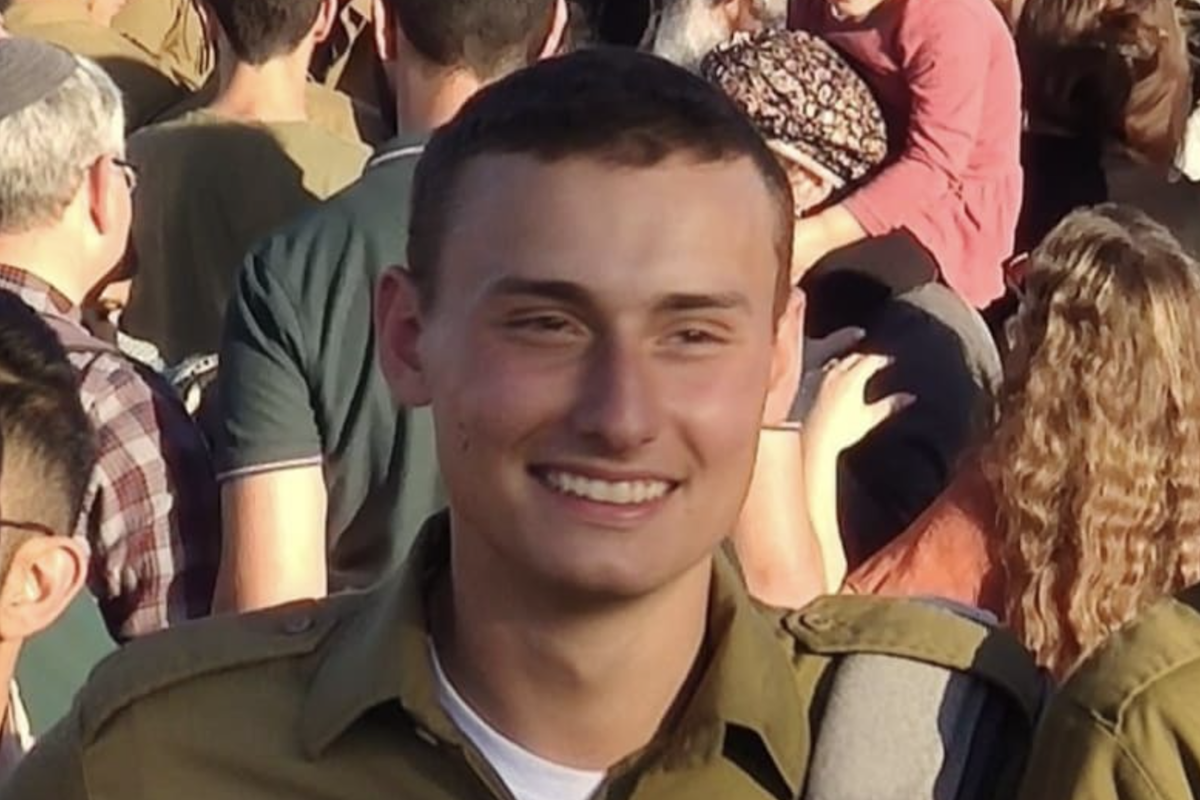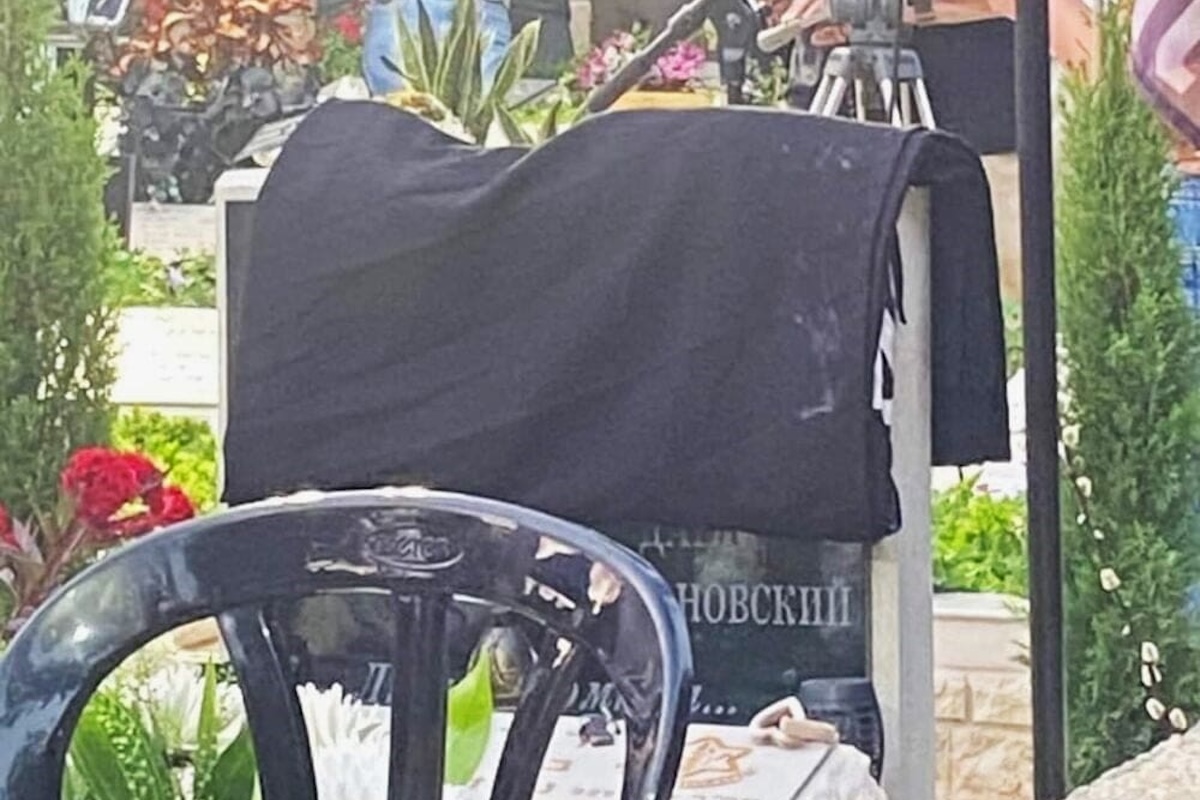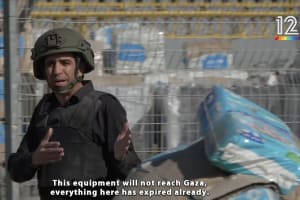Engraved cross on IDF soldier’s gravestone causes controversy regarding burial practices for non-Jews in Israel

IDF Staff Sgt. David Bogdanovsky, a Christian from Ukraine, immigrated to Israel in 2014 with his family because of Jewish heritage on his father's side.
He served in the Combat Engineering Corps and tragically fell in battle in Khan Younis, the Gaza Strip, on Dec. 23 at the age of 19 but his family’s grief has been compounded by the controversy caused by a cross on his gravestone.

Cemeteries in Israel are often separated by religion, with Jewish graves in one area and Christians in another. Bogdanovsky's family is now experiencing some of the complications that arise when non-Jews bury their loved ones in Israel.
The image of a cross on Bogdanovsky’s gravestone has sparked a sensitive debate in Israel, highlighting the cultural and religious complexities surrounding burial practices in Israel, particularly for non-Jews.
Bogdanovsky's mother, Yulia, shared her distress in a Facebook post: "David loved the country from the bottom of his heart. The cross engraved on his tombstone is part of his personal identity and the faith he grew up in."
For some Jews in Israel, the symbol of the cross has negative connotations due to a history of violent persecution at the hands of the Church.
The Jerusalem Post cited an N12 News report with a statement from the Ministry of Defense statement: "By law, it is not permissible to place a cross or any other religious marker on a military headstone."
"This is especially important in the Haifa military cemetery, where fallen Jewish soldiers are also buried."
The Post reported that the ministry cited a ruling by the IDF chief rabbi, who said the cross “harms the holiness” of the Jewish cemetery.
The report stated that an agreement was being sought between the public committee for soldier memorial and the Bogdanovsky family "in light of requests by families whose loved ones are buried nearby, who claim that the cross hurts their feelings and their ability to pray and say [the] Kadish [mourning prayer], and in light of the ruling of the IDF chief rabbi."
The family pointed to other gravestones that have such markers and told Ynet that when Bogdanovsky's mother was visiting his grave, she found a black cloth covering it. This took place during a ceremony to mark those who fell on Oct. 7, 2023.

Yulia decided to leave the cloth in its place out of respect for the families attending the ceremony.
"I respect the feelings of other parents, and I know what pain there is in every heart of a mother, father, sister, and brother. I didn't want to turn the ceremony into a battlefield," she said.
However, she told Ynet: "I don't have words to describe the humiliation I felt."
"I thought that my David, who gave his life to the country, who loved the country with all his heart for nine years since his aliyah, who joined the IDF to defend me, his family, and all of us, is no different than any of the others. He is not a second-class citizen. I stood there and cried with anger, frustration, and without understanding."
The story has been covered by several Israeli news outlets, including KAN, which reported the words of Bogdanovsky's father, Vadim.
"I feel that the army and the state betrayed David's memory," he said.
Haifa-based news source "Haipo," published a statement from the city's deputy mayor, Yossi Shalom.
"Following the incident, I contacted MK Meir Cohen who contacted Defense Minister Yoav Galant so that he would handle the issue, which is within his area of responsibility," Shalom wrote.
"Our warriors sacrificed their lives so that ours would have a better life in this country. We must give them, at the very least, the respect they deserve, for their work for the country and for us. The Ministry of Defense is responsible for the memorial ceremonies and we, as a municipality, will work to refine the procedures for them."
Maxim Karuchik, chairman of the foreign relations division of the Likud Youth, told Haipo: "It is a shameful and disgraceful act to cover the grave of an Israeli hero who fell in battle in defense of the country. Those actually responsible must be found and severely punished. It is unimaginable that the mother of an IDF soldier comes to visit her son's grave and discovers such an injury to his honor. I intend to act in every possible way to make sure that the guilty bear the consequences. We must apologize to the family and repair the serious injury to their dignity."
According to N12, the headstones should be designed in cooperation with the Defense Ministry and families that choose to make additions or changes are violating that law, The Jerusalem Post reported.
Despite efforts to have the cross removed by November, the ministry expressed its condolences for the IDF soldier's death at the hands of Hamas terrorists last October.
The ministry said it "will continue to accompany the family and all bereaved families," and that it would "work sensitively with all sides, and hope that we can reach an agreement and solution as soon as possible."
Yulia Bogdanovsky expressed her deep grief with the situation, saying, “I am disappointed, crying and screaming in pain. This is not the Jewish people I fell in love with."

Jo Elizabeth has a great interest in politics and cultural developments, studying Social Policy for her first degree and gaining a Masters in Jewish Philosophy from Haifa University, but she loves to write about the Bible and its primary subject, the God of Israel. As a writer, Jo spends her time between the UK and Jerusalem, Israel.













